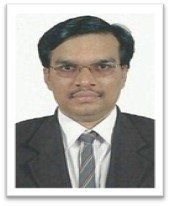The New Delhi, India International Convention and Expo Centre (IICC)is a project of Government of India, envisioned as a “World Class”, transit oriented, mixed-use district, providing one of the largest facilities of its kind in India and Asia.
The Project Salient features are as follows:
- “State of the Art” Exhibition and Convention Centre with IGBC Platinum Campus Rating
- 6000+ Seater Auditorium, with Retractable Seats by GALA – Largest in Asia
- Largest Installation of 3D Double Skinned GRC Cladding
- 80,000 Sqm of Exhibition Space
- 18,000 sqm of Open Exhibition Area
- 50,000 Sqm of Green Roofs
Structural Details
In this project a lot of innovative structures have been made possible due to it being made in Steel. The key elements done in steel are as follows:
- Four Multi-Level Trusses [with a total tonnage of 2,070 MT] planned intricately to ensure the Large Column free spaces within the Convention Centre. We have planned the supporting core walls in such a way the primary load transfer is by gravity.
- The Largest Multi-Level Truss of 800 MT erected as single piece.
- The Ball room roof Trusses have been designed in such a way to enable Modular erection.
- The Exhibition Hall Roofs have been designed as an 80m span flat roof with Landscape Green Roof loading.
- The Steel Structure has been interfacedwith various interior and façade features to ensure a well homogenized appearance
- Innovative External Steel feature elements in shape of “Tree shaped pergolas” have been designed and are presently under fabrication and erection.
Steel Used
Parallel Flange Rolled Sections (UC, UB, NPB Sections) of Grade E350 B0 and Plates of thickness up to 150mm of Grade E350 B0 and grade Z35 for the built-up sections in the Mega Trusses.
Encountering Challenges
Since the structural steel systems were configured to achieve the architectural intent and functional requirements, the truss systems had irregular patterns with spans up to 80m and the maximum truss weight being 800MT. This requires detailed planning of erection sequences and erection methodologies. 3D BIM models of the trusses were used in estimating the truss weights as well as the CG of truss to plan the rigging scheme. The trusses were further analyzed and checked specifically for the lifting stage as the lifting points were different from the truss permanent supports points. After erection, the trusses were temporary supported for lateral stability till the completion of all the connected trusses.
Due to the proximity of adjacent structures, meticulous planning of crane movement and hoisting locations were well plannedto enable smooth erections. Also, in addition to the same as the project falls within the descending flight path into Terminal 3, the choice of cranes was to be within the stipulated height limits which was also quite challenging.
Erection Techniques
The trusses with length upto 32m were erected with single crane and lengths above 32m trusses were erected with two cranes in tandem configuration. The mobile cranes of capacity up to 600MT were used for truss erection. The 800MT truss was erected with 2 nos. of 600MT crawler crane. At one point of time, the site had 2 nos. of 600MT cranes, one 500MT crane, 4 nos. – 400MT cranes, 8 nos. – 250MT cranes apart from multiple supporting cranes of less than 250MT crane.
Adhering Safety Measures
- All the manpower involved in the job shall wear appropriate personal Protection equipment’s like Helmet, Safety shoe, gloves, nose masks, safety goggles and safety belt wherever required.
- Ensured that height work permit is obtained to start that job and lifeline provision available wherever required.
- Ensured all lifting equipment are approved for particular load, checked, and certified by P&M and Third-Party Laboratory.
- Temporary bracing and/or strutting shall be provided whenever necessary to resist all erection loads and stresses, sideways, wind and other temporary loads during construction and under all other erection conditions.
- Final welding or other fixing of permanent connections shall not be done until proper alignment of the portion of the framework has been obtained.
- Particular care to be ensured that temporary bolts, jigs, or other fixings and/or supports are adequate to provide safety for all erection conditions and are left in until after the final joints have been made and passed.
- Wire ropes, chains, slings, lifting tackles etc. should be periodically inspected for their condition. Old lifting tackles should be marked with revised reduced lifting capacity due to deuteriation in service
Welding Process& Steel Tonnage
SAW (For Flat Section at Factory), SMAW -Site Welding (Erection Joints), FCAW, E7018 H4R (eliminates baking and diffusible H2 is limited to < 5ml / 100g of weld metal) for Site Welding was adopted.
Steel Tonnage consumed for the Main Structural Steel Works is about 26,000MT. The major suppliers for the rolled steel sections are Jindal Steel & and for the Plates is Steel Authority of India Limited (SAIL).
“Having been involved in multiple projects over my career of 30 years, I should say this project has been one of the most challenging projects in terms of scale and intricacy. I need to give special mention to the convention center building which has a well thought out arrangement of mega trusses which are intervened and amalgamated within the arrangement of the large column free spaces created within the building. Also, the 80m large span steel roof of the Exhibition Hall which has been made to accommodate landscape green roof loading has been quite challenging due to the special shape required to meet the Architectural intent.
I would like to extend my appreciation to the team of engineers, fabricators and installers who are making this project and iconic structure a reality.”
Veeramani, Design Director – IICC Project, Larsen & Toubro Limited

Factfile
Client: India International Convention Center Limited
Architects: IDOM + CPKA (Concept Architects)
ARCOP Associates (Detailed Architecture)
Consultants: Structure & MEP – L&T EDRC (Internal)
Steel Tonnage: 26,000MT





